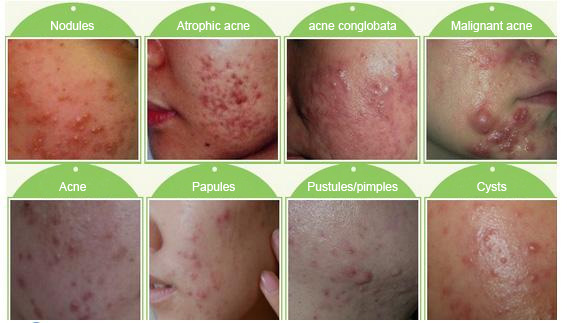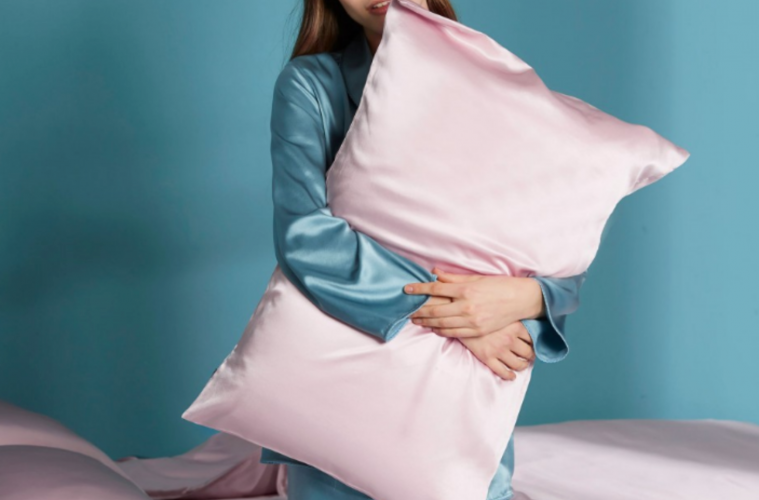Acne Is The Most Common Skin Condition In The United States, Affecting Up To 50 Million Americans Annually.

You may have tried everything to get rid of acne, such as the expensive facial treatment essence that your girlfriends use, the magical cleansing brush that influencers recommended, and the so-called highly effective acne cream that can eliminate acne overnight… but still, useless.
What happened?
Actually, this does not mean that these products are doing nothing for your skin, it is likely that you have overlooked this one fact: your pillowcases are the ones to blame! You would think to yourself, my pillowcases are clean and I wash them every two weeks, how is that the reason?
Well, while everything looks clean and washed properly, there are things, bad things you couldn’t see with bare eyes hidden in plain sight and can’t be washed off. They will stick to your skin and block the hair follicles, causing acne everywhere. Then how do we make sure that our sleeping pal wouldn’t turn into the murderer of our best look?
Choose your pillowcases carefully based on the fabric
Cotton, T/C fabric, and polyester can be used to make pillowcases, but the most comfortable and most healthy option is the silk pillowcases, which is breathable and hypoallergenic, resistant to dust mites and bacteria, and of course, does not irritate the skin. Talk about your dream sleep!
Silk is well known for its reputation as the Queen of fiber, liquid gold, and the second layer of the skin. 97% of silk is animal protein, it contains 18 kinds of amino acids necessary for the human body, which can clean and maintain the skin, increase cellular vitality, effectively reduce breakouts for those of us that are acne prone.
Pillowcases made of traditional fabrics are the perfect hideout for dust, skin shed, and oil
Even if you never bring anything dirty or unclean into your bed, your pillowcase will still be dirty and biohazard to your skin causing acne if it’s not regularly washed and replaced.

Is it the same for different fabrics that made our pillowcases?
No matter what your pillowcases are made of, cotton, linen or silk, they can all be the hideout for dirt, bacteria, and dust mites. So the pillowcases of all fabrics should be replaced regularly. And be cautious of those that used bleaching powder or chemical dye in the production process, they’re a big no-no for your delicate skin.
The effect of bad pillowcases on the skin varies from person to person. But know this, no matter what causes you to break out of acne – hormones, genetics or stress, an unclean pillowcase will only make it worse.
Three suggestions to make sure the pillowcase will no longer do harm to your skin!
1. Always wash your face before going to bed every night
This way there will be no dust, dirt or makeup residue from your face get on the bedding.
2. Use silk pillowcases
Silk is a natural animal fiber that is breathable and it does no harm to your skin. If you have used an acne care medication that contains peroxide or retinol benzoyl, make sure the pillow you use is white because these products will bleach the pillowcase.
3. Wash the pillowcase every two to three weeks
By doing so, you can be sure that you will not sleep on a pillow that has accumulated dirt and oil from the face forever. Take caution when you wash them. Liquid fabric softeners and dryer will leave a layer of wax on the pillow that can clog the pores. Therefore, avoid adding softener when washing the pillowcase. If you have to use it, it is best to use a fragrance-free softener.


